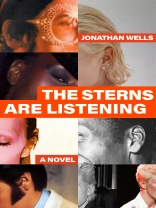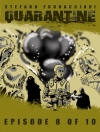Benjamin and Dita Stern are New Yorkers through and through.
Living in the pre-war, Upper East Side building Benjamin’s grandfather built, with two children no longer at home and professional lives never fully realized, perhaps being New Yorkers is the most that the Sterns will ever be. But Benjamin’s younger brother Spence, founder and CEO of hearing aid company Belphonics, has an idea for a new product line that comes from the brothers’ shared history of rock and roll and CBGB’s, the club that they visited often in their youths, and where, Spence believes, his hearing was permanently damaged.
In proposing that Benjamin join him in the new venture, Spence also hopes that it might salvage Benjamin’s and Dita’s tenuous financial position. However, they both know that getting involved in Spence’s schemes often comes at a high price. That same evening the Sterns have their daughter Alessandra over for dinner, only for the news of Benjamin’s potential new job to be upstaged by the appearance of their other child, seventeen-year-old Giorgio, whose violent adolescent behavior resulted in his being sent away for most of high school.
Now seventeen, he steps through their front door without warning, a still very troubled young man. As Benjamin and Dita find themselves reckoning with the choices they have made, a sudden shift in perspective offers Giorgio’s voice, whose declaration that his name is not, in fact, Giorgio, sparks the retelling of his troubled past—one for whom all the Sterns must come to share some measure of responsibility.
A debut novel from poet and memoirist Jonathan Wells, The Sterns Are Listening explores a family on the verge of both collapse and regeneration. Brimming with affection and humor for its characters, it nevertheless traces a courageous path to the deeply uncomfortable heart of the matter, one that might just give the Stern family a shot at redemption.
عن المؤلف
Jonathan Wells has published two collections with Four Way Books, Train Dance and The Man With Many Pens. His poems have appeared in The New Yorker, Ploughshares, AGNI and The Academy of American Poets Poem-A-Day program, and many other journals.












